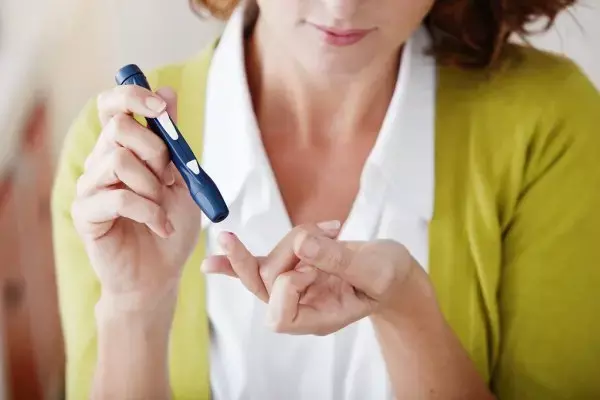- Home
- Medical news & Guidelines
- Anesthesiology
- Cardiology and CTVS
- Critical Care
- Dentistry
- Dermatology
- Diabetes and Endocrinology
- ENT
- Gastroenterology
- Medicine
- Nephrology
- Neurology
- Obstretics-Gynaecology
- Oncology
- Ophthalmology
- Orthopaedics
- Pediatrics-Neonatology
- Psychiatry
- Pulmonology
- Radiology
- Surgery
- Urology
- Laboratory Medicine
- Diet
- Nursing
- Paramedical
- Physiotherapy
- Health news
- Fact Check
- Bone Health Fact Check
- Brain Health Fact Check
- Cancer Related Fact Check
- Child Care Fact Check
- Dental and oral health fact check
- Diabetes and metabolic health fact check
- Diet and Nutrition Fact Check
- Eye and ENT Care Fact Check
- Fitness fact check
- Gut health fact check
- Heart health fact check
- Kidney health fact check
- Medical education fact check
- Men's health fact check
- Respiratory fact check
- Skin and hair care fact check
- Vaccine and Immunization fact check
- Women's health fact check
- AYUSH
- State News
- Andaman and Nicobar Islands
- Andhra Pradesh
- Arunachal Pradesh
- Assam
- Bihar
- Chandigarh
- Chattisgarh
- Dadra and Nagar Haveli
- Daman and Diu
- Delhi
- Goa
- Gujarat
- Haryana
- Himachal Pradesh
- Jammu & Kashmir
- Jharkhand
- Karnataka
- Kerala
- Ladakh
- Lakshadweep
- Madhya Pradesh
- Maharashtra
- Manipur
- Meghalaya
- Mizoram
- Nagaland
- Odisha
- Puducherry
- Punjab
- Rajasthan
- Sikkim
- Tamil Nadu
- Telangana
- Tripura
- Uttar Pradesh
- Uttrakhand
- West Bengal
- Medical Education
- Industry
Young women with T2DM at greater risk of mortality following AMI: Study

Young women with T2DM appear to be at greater risk of mortality following AMI (Acute Myocardial Infarction), according to a new research published in the Diabetes Research and Clinical Practice.
Type 2 diabetes mellitus (T2DM) is a risk factor for mortality after acute myocardial infarction (AMI). A group of researchers studied the impact of Type 2 diabetes mellitus (T2DM) related to sex and age on post-AMI long-term mortality.
A retrospective study included post- AMI (Acute Myocardial Infarction) patients. Data were obtained from electronic medical records. We defined the study groups by Type 2 diabetes mellitus (T2DM), stratified by age-sex. The major outcomes of the study were up-to-10 years post-discharge all-cause mortality.
The results of the study are as follows:
16,168 patients were analyzed, 40.3% had Type 2 diabetes mellitus (T2DM). Ten-year mortality rates were 50.3% with Type 2 diabetes mellitus (T2DM) vs. 33.1% without Type 2 diabetes mellitus (T2DM), adjHR=1.622 (p<0.001). Females (adjHR=1.085, p=0.052) and increased age (adjHR=1.056 for one-year increase, p<0.001) were associated with a higher risk of mortality (borderline statistical significance for sex). The relationship between Type 2 diabetes mellitus (T2DM) and mortality was stronger in females than in males at <50 and 60-69 years (p-for-interaction 0.025 and 0.009 respectively), but not for other age groups.
Thus, the researchers concluded that the study implies heterogeneity in the impact of Type 2 diabetes mellitus (T2DM) on mortality of post- AMI (Acute Myocardial Infarction) patients, being greater among young patients, particularly females, and no significant impact in octogenarians. That implies that young women with Type 2 diabetes mellitus (T2DM) should have advanced measures for early detection of coronary artery disease and tight control of cardiovascular risk factors to lower the propensity to develop AMI (Acute Myocardial Infarction).
Reference:
Heterogenicity of diabetes as a risk factor for all-cause mortality after acute myocardial infarction: Age and sex impact by Ygal Plakht et al. published in the Diabetes Research and Clinical Practice
DOI: https://doi.org/10.1016/j.diabres.2021.109117
Dr. Shravani Dali has completed her BDS from Pravara institute of medical sciences, loni. Following which she extensively worked in the healthcare sector for 2+ years. She has been actively involved in writing blogs in field of health and wellness. Currently she is pursuing her Masters of public health-health administration from Tata institute of social sciences. She can be contacted at editorial@medicaldialogues.in.
Dr Kamal Kant Kohli-MBBS, DTCD- a chest specialist with more than 30 years of practice and a flair for writing clinical articles, Dr Kamal Kant Kohli joined Medical Dialogues as a Chief Editor of Medical News. Besides writing articles, as an editor, he proofreads and verifies all the medical content published on Medical Dialogues including those coming from journals, studies,medical conferences,guidelines etc. Email: drkohli@medicaldialogues.in. Contact no. 011-43720751


